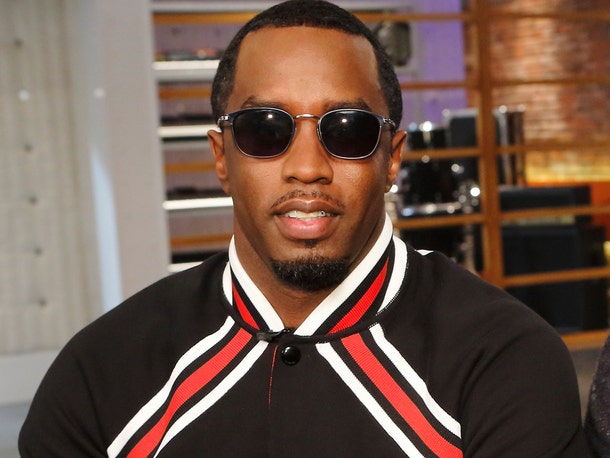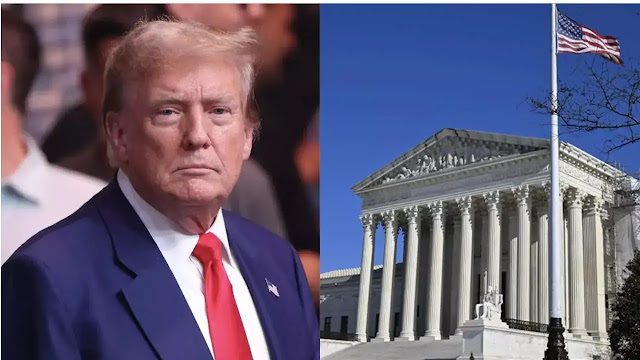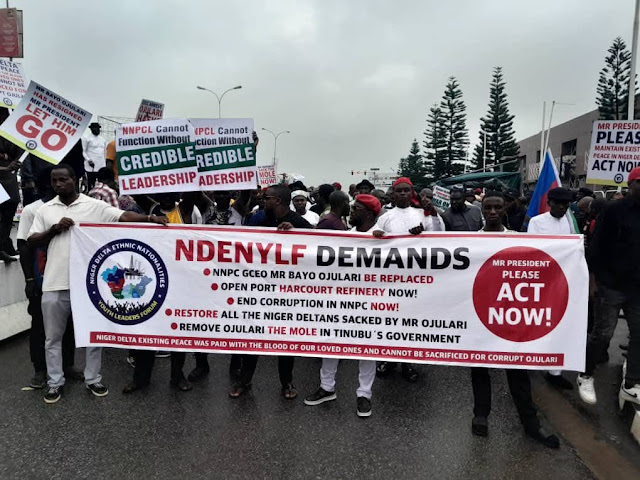In a significant development for music mogul Sean “Diddy” Combs, a New York judge has dismissed a civil lawsuit filed against him, marking a legal victory as he navigates a complex web of legal battles. The dismissed lawsuit, brought by a plaintiff under the pseudonym John Doe, accused Combs of drugging and sexually assaulting him at a Los Angeles nightclub in 2015. Despite this win, Combs remains embroiled in multiple active civil suits and awaits sentencing in a separate federal criminal case scheduled for October 3, 2025. The ruling, based on the expiration of the statute of limitations, underscores the intricate legal landscape surrounding Combs, a prominent figure in the entertainment industry, and highlights broader issues related to legal accountability, statutes of limitations, and the challenges of addressing historical allegations in high-profile cases.
The Dismissed Lawsuit: Allegations and Context
The lawsuit, filed in February 2025 by attorney Tony Buzbee on behalf of John Doe, alleged a disturbing incident that occurred a decade earlier at a Los Angeles nightclub. According to the plaintiff, who was a 23-year-old aspiring artist at the time, he attended an event where Combs was present. Doe claimed that after being offered a drink, he lost consciousness and later awoke to find Combs engaging in unwanted sexual contact. The suit further alleged that Combs threatened to derail Doe’s budding music career if he resisted or spoke out about the incident. These accusations painted a troubling picture of abuse of power, leveraging Combs’ influence as a music industry titan to intimidate and silence a vulnerable individual.
The allegations against Combs were part of a broader wave of civil lawsuits filed against him in recent years, many of which have centered on claims of sexual misconduct, coercion, and abuse. As a founder of Bad Boy Entertainment and a globally recognized entrepreneur, Combs has built a multifaceted empire that includes music, fashion, and media. However, his legal troubles have cast a shadow over his legacy, raising questions about accountability in the entertainment industry and the mechanisms available for victims to seek justice.
The plaintiff’s decision to file under the pseudonym John Doe reflects a common practice in cases involving sensitive allegations, particularly those related to sexual assault. By maintaining anonymity, the plaintiff aimed to protect his privacy while bringing forth serious accusations against a high-profile figure. However, the dismissal of the case highlights the legal hurdles that plaintiffs face when pursuing claims from events that occurred years earlier, particularly when statutes of limitations come into play.
The Legal Ruling: Statute of Limitations as a Barrier
The New York judge’s decision to dismiss the lawsuit hinged on the expiration of the statute of limitations, a legal principle that sets a time limit for filing claims. According to the court’s ruling, the law in place at the time of the alleged 2015 incident allowed a five-year window for filing such claims, meaning the deadline would have expired in 2020. While New York extended the statute of limitations for sexual assault cases to 20 years in 2019, the judge noted that this change was not retroactive and therefore did not apply to Doe’s case. As a result, the court determined that the lawsuit could not proceed, effectively closing the door on the plaintiff’s pursuit of justice in this matter.
The dismissal also extended to claims filed against Combs’ companies, including Bad Boy Entertainment and Combs Enterprises. These entities, central to Combs’ business empire, were named in the lawsuit as potentially liable for enabling or failing to prevent the alleged misconduct. However, the court’s ruling applied the same statute of limitations reasoning to dismiss these claims, further limiting the scope of accountability in this case.
The statute of limitations is a critical aspect of the legal system, designed to ensure that cases are brought forward within a reasonable timeframe when evidence is still fresh and witnesses are available. However, it can also be a significant barrier for victims of sexual assault, who may take years to come forward due to trauma, fear of retaliation, or lack of resources. The dismissal of Doe’s lawsuit highlights the tension between legal timelines and the realities of addressing historical allegations, particularly in cases involving powerful individuals.
Broader Legal Context: Combs’ Ongoing Battles
The dismissal of the John Doe lawsuit is one of several recent victories for Combs in civil litigation. Over the past few years, he has faced a series of lawsuits alleging various forms of misconduct, including sexual assault, harassment, and labor violations. While some of these cases have been dismissed or settled, others remain active, keeping Combs under intense legal scrutiny. The complexity of these lawsuits reflects the challenges of navigating allegations against a public figure with significant resources and influence.
In addition to his civil cases, Combs is awaiting sentencing in a federal criminal case, scheduled for October 3, 2025. The details of the federal case have not been fully disclosed in the context of this ruling, but it represents a separate and potentially more serious legal challenge for Combs. Federal criminal cases often involve allegations of significant wrongdoing, such as fraud, racketeering, or other federal offenses, and can carry severe penalties, including lengthy prison sentences. The juxtaposition of Combs’ civil and criminal legal battles underscores the multifaceted nature of his current predicament, as he fights to protect his reputation and freedom on multiple fronts.
The dismissal of the John Doe lawsuit does not negate the broader allegations against Combs, nor does it resolve the ongoing civil suits. Each case is evaluated on its own merits, and the active lawsuits may still result in significant legal or financial consequences for Combs. Moreover, the public nature of these cases has amplified scrutiny of his conduct, raising questions about accountability, power dynamics, and the culture of the entertainment industry.
The Role of Attorney Tony Buzbee
The lawsuit was filed by Tony Buzbee, a high-profile attorney known for representing plaintiffs in cases against prominent individuals and corporations. Buzbee’s involvement added weight to the allegations, as he has a track record of taking on powerful defendants in high-stakes litigation. His decision to represent John Doe suggests a belief in the credibility of the plaintiff’s claims, despite the ultimate dismissal due to the statute of limitations. Buzbee’s legal strategy often involves leveraging public attention to pressure defendants, and his participation in this case likely contributed to its visibility.
However, the dismissal highlights the challenges even experienced attorneys face when navigating legal technicalities like statutes of limitations. Buzbee’s arguments in the lawsuit focused on the severity of the alleged misconduct and the power imbalance between Combs and the plaintiff, but these were insufficient to overcome the legal barrier posed by the expired filing window. The outcome underscores the importance of timely legal action in such cases and the need for broader reforms to ensure that victims have adequate opportunities to seek justice.
Implications for the Entertainment Industry
The allegations against Combs and the dismissal of the lawsuit have broader implications for the entertainment industry, where issues of power, privilege, and accountability have come under increasing scrutiny in recent years. The #MeToo movement and similar campaigns have shed light on the prevalence of sexual misconduct in the industry, prompting calls for systemic change. High-profile cases involving figures like Harvey Weinstein, R. Kelly, and others have highlighted the challenges victims face in seeking justice, particularly when allegations involve events from years past.
Combs’ case, while distinct, fits into this broader narrative. As a music mogul with decades of influence, he has been a central figure in shaping hip-hop and popular culture. His companies, Bad Boy Entertainment and Combs Enterprises, have launched the careers of numerous artists and contributed to the global rise of urban music. However, the allegations against him raise questions about how power is wielded in the industry and the extent to which influential figures can evade accountability.
The dismissal of the lawsuit due to the statute of limitations also highlights a critical issue in addressing historical allegations of sexual assault. Many victims delay coming forward due to fear, shame, or lack of resources, only to find that legal barriers prevent them from pursuing their claims. This has sparked debates about the need for legislative reforms, such as extending statutes of limitations or creating look-back windows that allow victims to file claims for past incidents. New York’s 2019 extension of the statute of limitations to 20 years was a step in this direction, but its non-retroactive nature limited its impact in cases like John Doe’s.
Combs’ Legacy and Public Perception
Sean “Diddy” Combs has long been a towering figure in the entertainment world, known for his entrepreneurial acumen, musical innovation, and cultural influence. From founding Bad Boy Entertainment in the 1990s to launching successful ventures in fashion, media, and beverages, Combs has built a legacy as a trailblazer. His contributions to hip-hop, through artists like The Notorious B.I.G., Mary J. Blige, and others, have left an indelible mark on the industry. However, the allegations against him threaten to tarnish this legacy, casting a shadow over his achievements.
Public perception of Combs has been mixed in light of the lawsuits. Supporters argue that he is being unfairly targeted and that the dismissed lawsuits demonstrate the weakness of the allegations against him. Critics, however, contend that the volume of claims suggests a pattern of behavior that warrants further investigation. The federal criminal case, in particular, has intensified scrutiny, as it raises the possibility of more serious charges that could have significant consequences for Combs’ career and freedom.
The dismissal of the John Doe lawsuit may provide temporary relief for Combs, but it does little to quell the broader controversy surrounding him. The active civil suits and the upcoming federal sentencing will continue to shape public and legal perceptions of his conduct. For now, Combs remains a polarizing figure, celebrated for his contributions to music and business but increasingly defined by the legal battles that dominate headlines.
Challenges of Addressing Historical Allegations
The dismissal of the John Doe lawsuit highlights the challenges of addressing historical allegations of sexual assault. Victims often face significant barriers, including emotional trauma, fear of retaliation, and societal stigma, which can delay their decision to come forward. By the time they are ready to seek justice, legal deadlines like statutes of limitations may have expired, effectively barring their claims. This creates a Catch-22 situation where victims are penalized for the very factors that prevented them from acting sooner.
The case also underscores the power dynamics at play in the entertainment industry, where influential figures like Combs can wield significant control over aspiring artists. The plaintiff’s allegation that Combs threatened to derail his career if he resisted highlights the vulnerability of young individuals seeking to break into the industry. These dynamics can silence victims and perpetuate a culture of impunity, making it critical for legal and industry reforms to address these issues.
Legislative changes, such as extending statutes of limitations or creating look-back windows, have been proposed as solutions to these challenges. Some states, including New York, have implemented such reforms, but their non-retroactive nature limits their impact on older cases. Advocacy groups continue to push for broader changes, arguing that victims deserve a fair opportunity to seek justice, regardless of when the alleged incidents occurred.
The Road Ahead for Combs
As Combs prepares for his federal sentencing on October 3, 2025, the dismissed lawsuit offers a momentary reprieve but does not resolve the broader legal challenges he faces. The active civil suits, which include a range of allegations, will continue to test his legal team’s ability to navigate complex litigation. The federal criminal case, meanwhile, represents a more immediate and potentially more severe threat, as it could result in significant penalties, including imprisonment.
Combs’ legal strategy will likely focus on addressing each case individually while maintaining his public image as a successful entrepreneur and philanthropist. His team may also seek to leverage the dismissed lawsuits to argue that the allegations against him are unfounded or exaggerated. However, the volume and nature of the claims, combined with the federal case, make it difficult to dismiss the controversy entirely.
For the plaintiffs in the active lawsuits, the dismissal of the John Doe case may be discouraging, but it does not necessarily diminish the validity of their claims. Each case will be evaluated based on its specific evidence and legal merits, and the outcomes could vary widely. The legal battles are likely to continue for months or even years, keeping Combs in the spotlight for reasons beyond his musical and business achievements.
Broader Implications for Society
The Combs case raises important questions about accountability, justice, and power in the entertainment industry and beyond. It highlights the need for systemic changes to ensure that victims of sexual assault have access to justice, regardless of the passage of time or the influence of the accused. It also underscores the importance of fostering a culture of transparency and accountability in industries where power imbalances are prevalent.
The dismissal of the lawsuit due to the statute of limitations is a reminder of the legal system’s limitations in addressing historical allegations. While the principle serves a purpose in ensuring timely litigation, it can also prevent victims from seeking redress, particularly in cases involving trauma or coercion. Advocates for reform argue that extending statutes of limitations or creating retroactive windows could provide a more equitable path for justice.
The case also highlights the role of public opinion in shaping legal and cultural outcomes. The high-profile nature of Combs’ legal battles has sparked widespread debate, with supporters and critics weighing in on social media, news outlets, and public forums. This scrutiny can influence legal proceedings, as public pressure may encourage authorities to pursue investigations more rigorously or prompt defendants to settle cases to avoid further reputational damage.
Conclusion
Sean “Diddy” Combs’ legal victory in the dismissal of the John Doe lawsuit marks a significant moment in his ongoing legal saga, but it does not resolve the broader challenges he faces. The New York judge’s ruling, based on the expiration of the statute of limitations, highlights the complexities of addressing historical allegations of sexual assault, particularly when legal deadlines and power dynamics come into play. While the dismissal of claims against Combs and his companies, including Bad Boy Entertainment and Combs Enterprises, is a win for his legal team, the active civil suits and the upcoming federal sentencing ensure that his legal battles are far from over.
The case underscores broader issues in the entertainment industry, where allegations of misconduct have prompted calls for accountability and reform. The challenges faced by victims, such as statutes of limitations and fear of retaliation, highlight the need for legislative and cultural changes to ensure justice. As Combs navigates his legal troubles, the outcomes of his cases will have implications not only for his legacy but also for the broader conversation about power, privilege, and accountability in society.
For now, Combs remains a polarizing figure, celebrated for his contributions to music and business but increasingly defined by the allegations against him. The road ahead will require careful navigation of legal, public, and personal challenges, as he seeks to protect his reputation and freedom. The John Doe lawsuit, while dismissed, is a reminder of the complexities of seeking justice in high-profile cases and the enduring impact of power dynamics in shaping legal and cultural outcomes.







